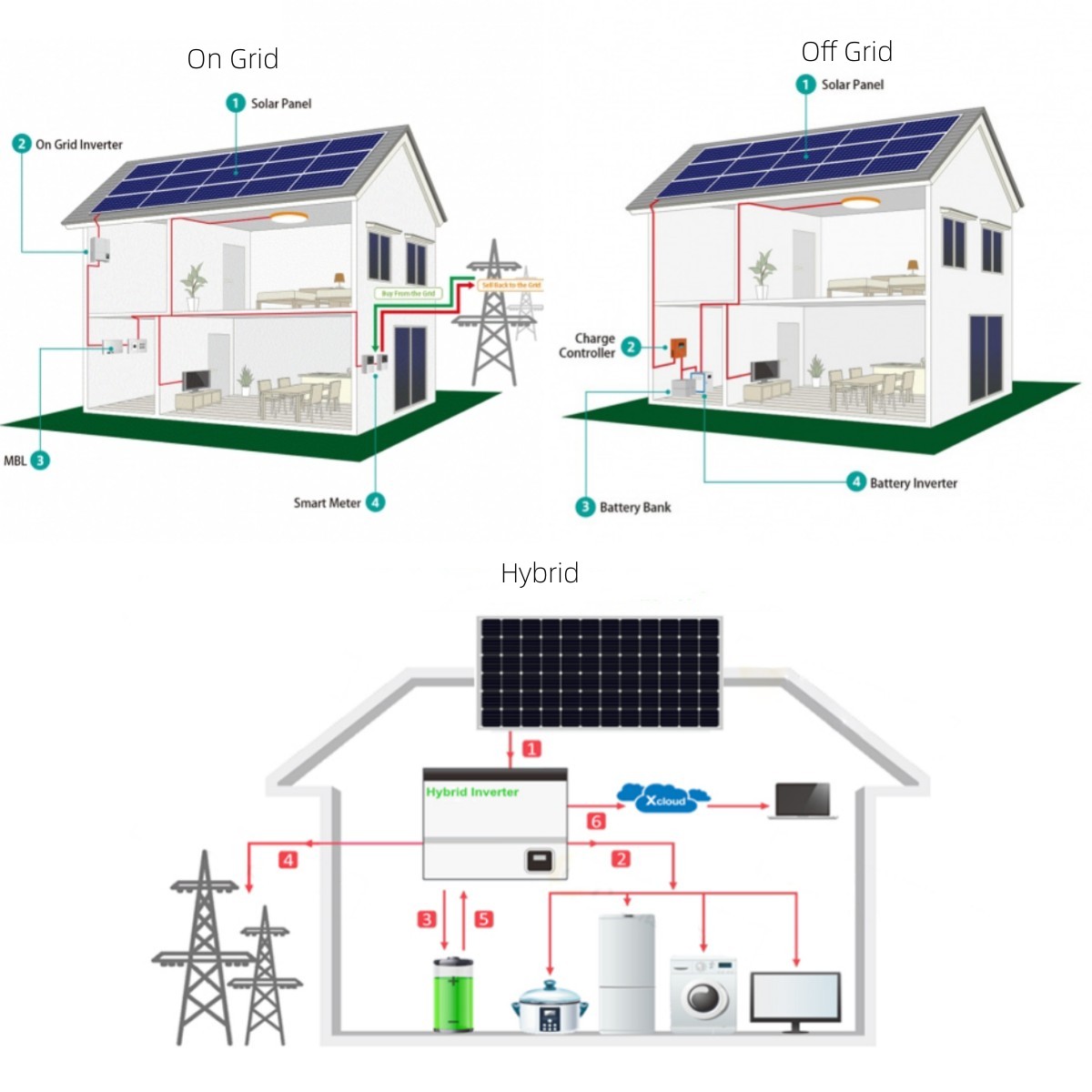Solar power systems are becoming increasingly popular as a sustainable and cost-effective energy solution. There are three main types of solar power systems: grid-connected, off-grid and hybrid. Each type has its own unique features and benefits, so consumers must understand the differences in order to choose the best option for their specific needs.
Grid-tied solar power systems are the most common type and are connected to the local utility grid. These systems harness the sun to generate electricity and feed excess electricity back into the grid, allowing homeowners to receive credits for the excess energy produced. Grid-tied systems are ideal for those who want to reduce their electric bills and take advantage of the net metering programs offered by many utility companies. They are also relatively easy to install and require minimal maintenance, making them a convenient choice for many homeowners.
Off-grid solar power systems, on the other hand, are designed to operate independently of the utility grid. These systems are typically used in remote areas where grid access is limited or non-existent. Off-grid systems rely on battery storage to store excess energy generated during the day for use at night or when sunlight is low. While off-grid systems provide energy independence and can be a reliable source of power in remote locations, they require careful planning and sizing to ensure they can meet the energy needs of the property.
Hybrid solar power generation systems combine the characteristics of grid-connected and off-grid systems, providing the flexibility of grid-connected and independent operation. These systems are equipped with battery memory that can store excess energy for use in the event of a power outage or grid unavailability. Hybrid systems are a popular option for homeowners who want the security of backup power while still taking advantage of the benefits of grid-tied systems, such as net metering and lower energy bills.
When considering which type of solar system is best for your needs, it’s important to consider factors such as your location, energy consumption patterns, and budget. On-grid systems are a good option for those who want to reduce their energy bills and take advantage of net metering, while off-grid systems are suitable for properties in remote areas without access to the grid. Hybrid systems offer the best of both worlds, providing backup power while being able to feed excess energy back into the grid.
In summary, solar power systems provide homeowners and businesses with sustainable and reliable energy. Understanding the differences between on-grid, off-grid, and hybrid systems is critical to making an informed decision about which type of system is best for your specific needs. Whether you want to reduce your electric bill, become energy independent, or have backup power during a power outage, there is a solar power system that can meet your requirements. As solar technology continues to advance, the future of solar energy as a clean, efficient energy solution is bright.
Post time: Mar-28-2024





